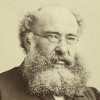“ Usefulness is only a tendency to a certain end; and it is a contradiction in terms, that anything pleases as means to an end, where the end itself no wise affects us. ”
David Hume, An Enquiry Concerning the Principles of Morals (1751). copy citation
| Author | David Hume |
|---|---|
| Source | An Enquiry Concerning the Principles of Morals |
| Topic | usefulness contradiction |
| Date | 1751 |
| Language | English |
| Reference | |
| Note | |
| Weblink | http://www.gutenberg.org/files/4320/4320-h/4320-h.htm |
Context
“Compelled by these instances, we must renounce the theory, which accounts for every moral sentiment by the principle of self-love. We must adopt a more public affection, and allow, that the interests of society are not, even on their own account, entirely indifferent to us. Usefulness is only a tendency to a certain end; and it is a contradiction in terms, that anything pleases as means to an end, where the end itself no wise affects us. If usefulness, therefore, be a source of moral sentiment, and if this usefulness be not always considered with a reference to self; it follows, that everything, which contributes to the happiness of society, recommends itself directly to our approbation and good-will.”
source


